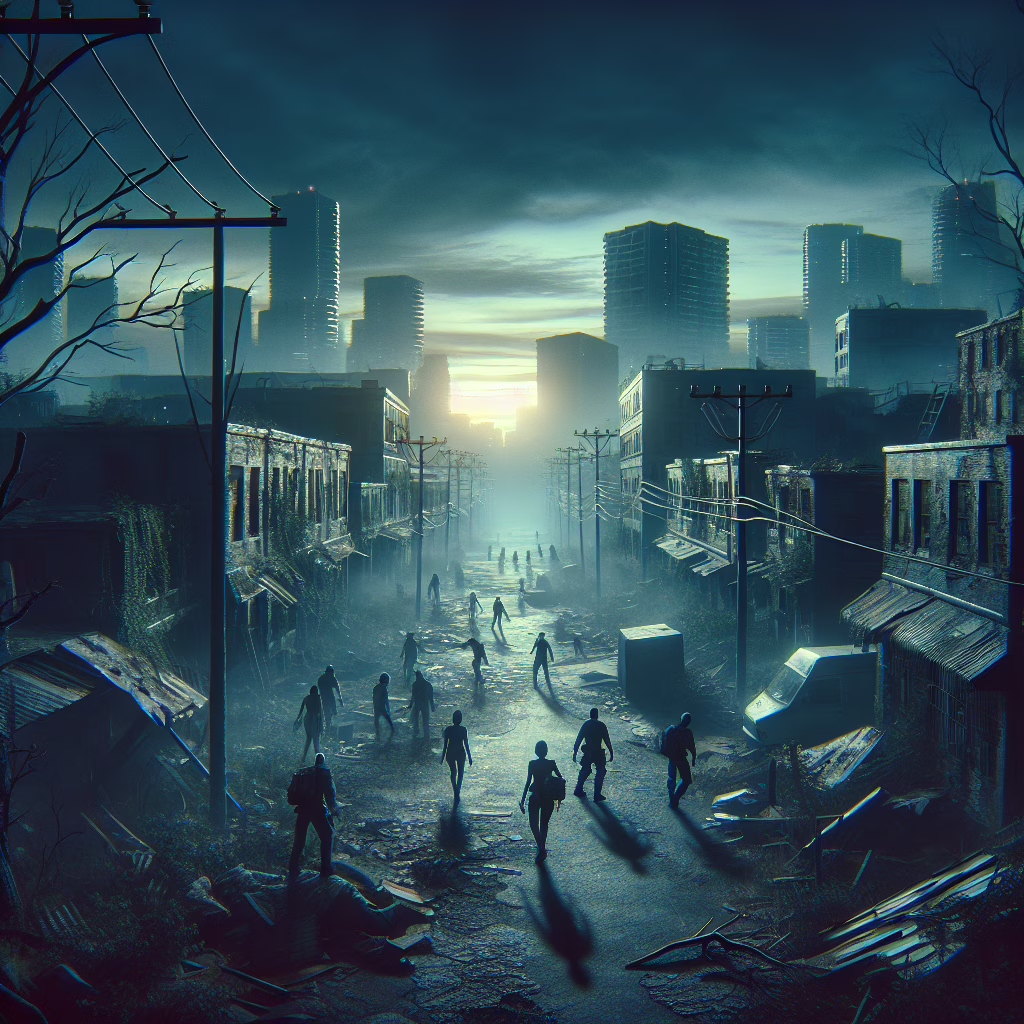In the thrilling world of gaming, few titles evoke as much nostalgia and excitement as the Resident Evil series. Capcom, the mastermind behind this iconic franchise, recently took us on a behind-the-scenes tour of their creative process. They explored ideas for an open world and online features in Resident Evil Requiem, but then—surprise!—decided to go back to the drawing board. It’s like when you try to bake a cake but realize you forgot the eggs. What do you do? You improvise!
The Open World Experiment: A Recipe for Survival?
Imagine a vast landscape filled with zombies, mysterious creatures lurking in the shadows, and that sweet, sweet tension of survival. Capcom envisioned Resident Evil Requiem as an expansive open-world experience. The idea was to create a game where players could roam freely, scavenging for supplies while dodging zombies like they’re auditioning for a role in a horror movie. Who wouldn’t want that?
The team had grand plans: players could form alliances (or rivalries) with each other while battling the undead. But alas, as they dove deeper into development, it became clear that creating an engaging open world with the spine-chilling atmosphere fans love was no small feat. Balancing survival horror with expansive exploration is like trying to juggle chainsaws—exciting but fraught with danger.
Some key challenges included:
- Designing a world that feels alive and immersive while maintaining the eerie atmosphere that defines the franchise.
- Ensuring gameplay mechanics support survival horror without sacrificing player freedom.
- Creating a narrative that motivates exploration in an open-world setting.
Online Features: Connecting Survivors
In addition to the open-world concept, Capcom experimented with online features that would allow players to interact in real-time. Imagine teaming up with friends from across the globe to fend off a horde of zombies while exchanging witty banter. Sounds fantastic, right? Well, it seems that bringing this vision to life posed some challenges.
Developers realized that adding online elements could dilute the immersive experience that defines Resident Evil. The last thing you want is a zombie apocalypse interrupted by someone’s connection issues or an accidental voice chat about last weekend’s Netflix binge. This led to important considerations, such as:
- Maintaining atmosphere and pacing without disruptions common in online settings.
- Designing co-op missions that feel organic rather than forced.
- Creating systems for communication that enhance the gameplay experience without detracting from immersion.
The Return to Roots: Why Simplicity Wins
After much brainstorming, doodling on whiteboards, and probably a few cups of coffee too many, Capcom decided it was time to pivot. They returned to their roots, focusing on what made Resident Evil great in the first place: intense atmosphere, compelling storytelling, and survival horror that keeps players on edge.
This decision reminds us all that sometimes less is more. In a world where everything is getting bigger and more complex, returning to simplicity can often yield the most rewarding experiences. It’s like opting for a classic cheeseburger instead of a fancy avocado toast burger—sometimes you just want that satisfying bite.
The Future of Resident Evil: A Blend of Old and New?
As we look ahead to what Capcom has planned for Resident Evil Requiem, one thing is clear: they are committed to delivering an experience that honors the franchise’s legacy while exploring new horizons. Fans can expect thrilling gameplay elements infused with nostalgia—a delightful blend of old and new.
The takeaway? While open-world adventures and online play can be exhilarating, sometimes the heart of survival horror lies in tightly crafted narratives and atmospheric dread. Here’s hoping Capcom finds that sweet spot!
What are your thoughts on Capcom’s journey through these creative explorations? Do you think an open-world Resident Evil could work? We’d love to hear your opinions! Feel free to share your thoughts below!
A big thank you to IGN for their original article on Capcom’s exploration of these ideas! Check it out here.

